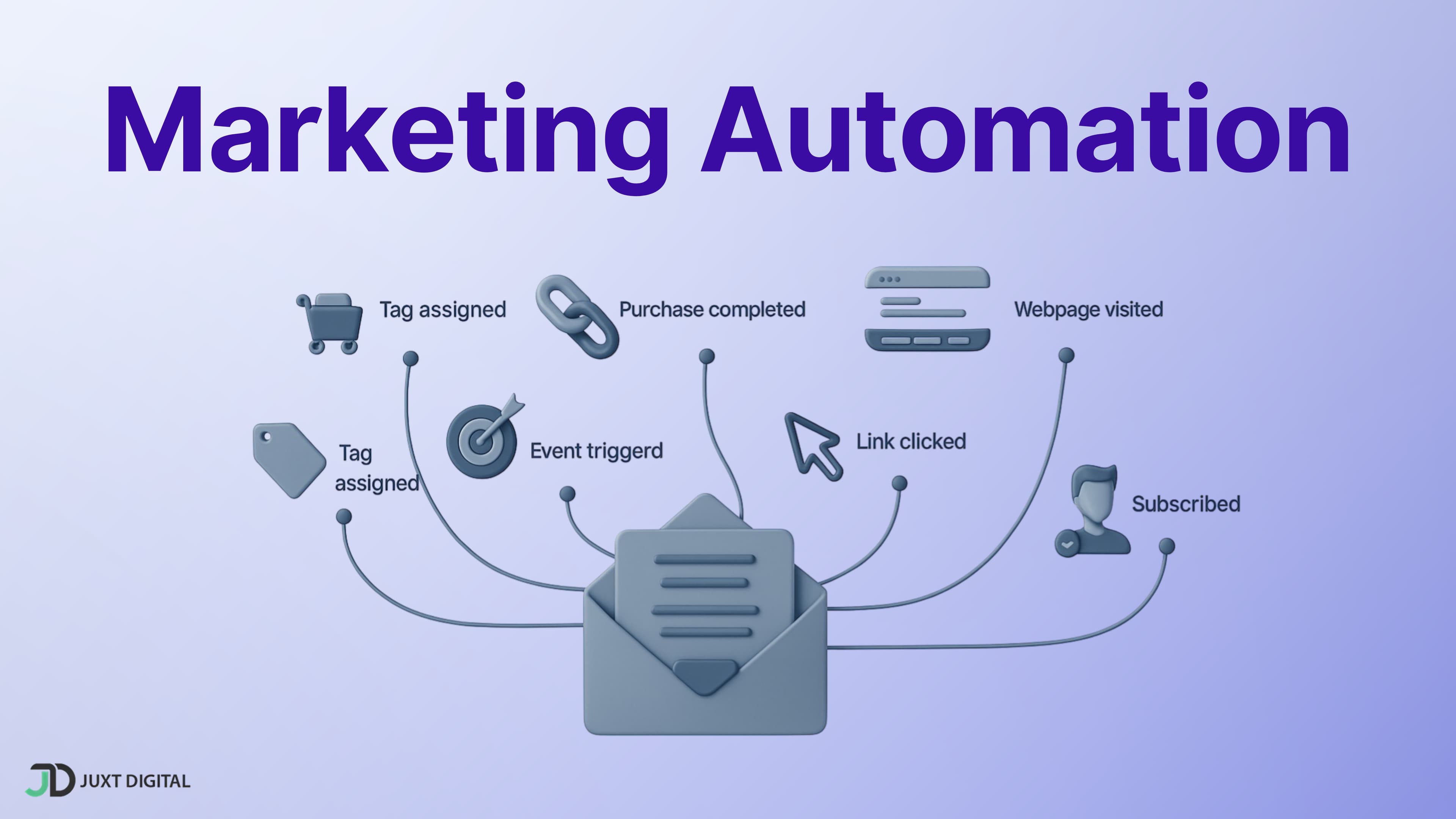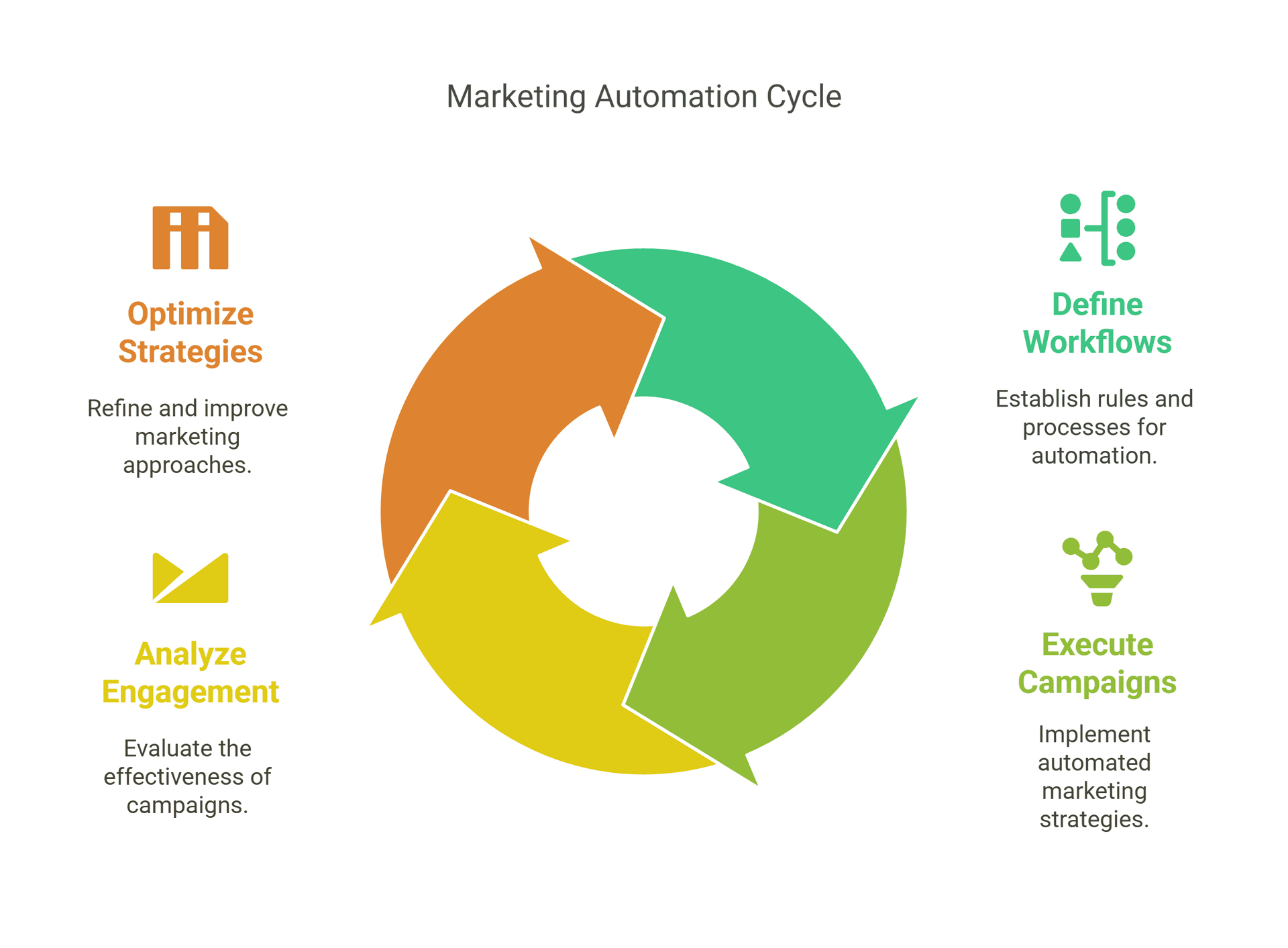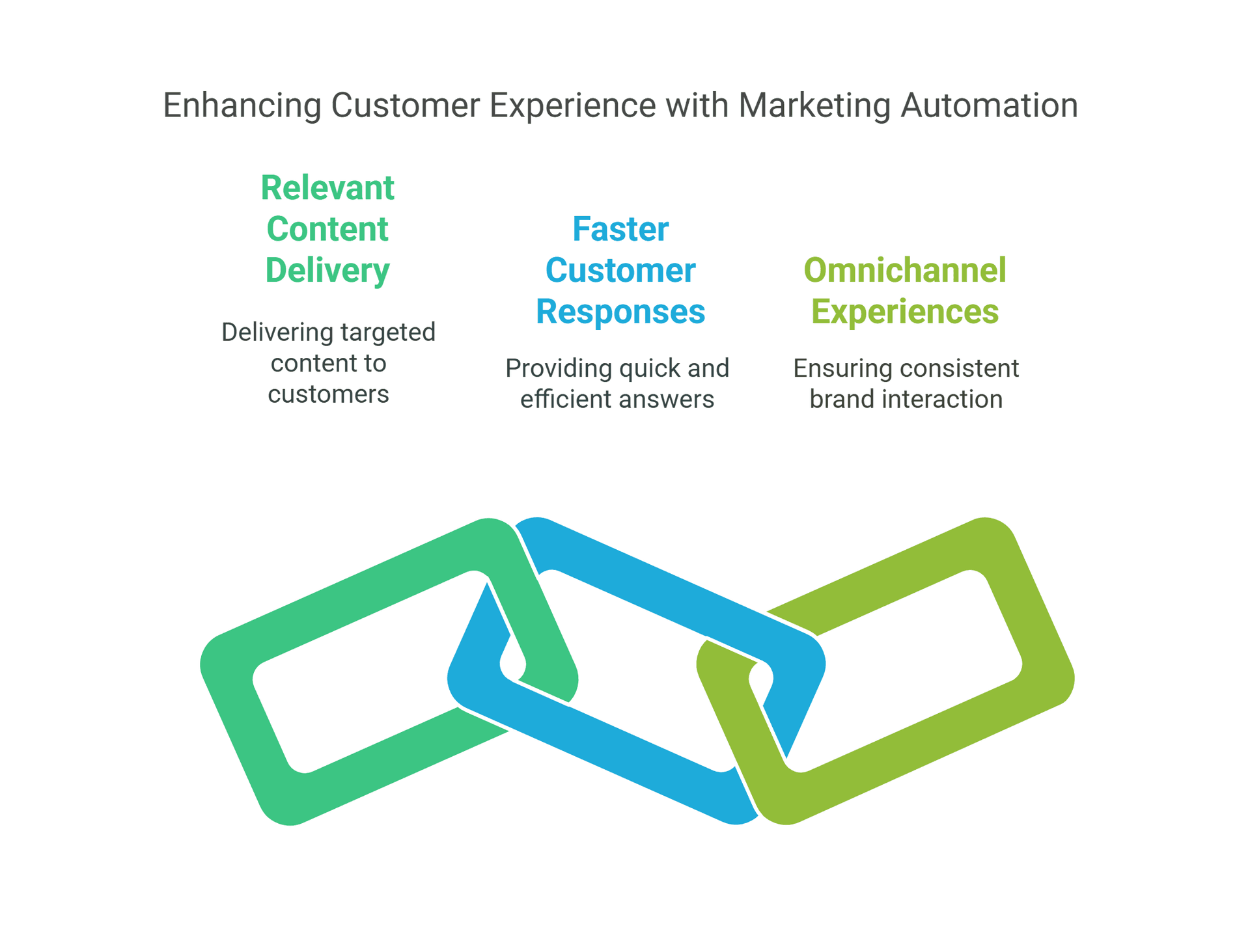Marketers using automation are 46% more likely to report effective marketing strategies, and companies using marketing automation outperform their competitors by 63%. As marketing budgets shrink and competition increases, businesses use marketing automation to streamline processes, improve efficiency, and drive revenue growth. But what exactly is marketing automation?
Put simply, marketing automation involves using software to automate repetitive marketing tasks. These tasks can include sending emails and social media posts to managing ad campaigns, and tracking website traffic. By automating these tasks, marketers can free up time to focus on more strategic initiatives, such as developing new marketing campaigns and creating more engaging content.
How does marketing automation work?
Marketing automation uses software to trigger actions based on pre-defined rules and workflows. For example, a marketer might create a workflow that automatically sends a welcome email to new subscribers or an abandoned cart reminder to shoppers who leave items in their online shopping carts.
These workflows can be as straightforward or as complex as needed, and they can be customized to fit the specific needs of any business. Some common marketing automation workflows include:
- Email marketing: Sending automated email sequences to nurture leads, welcome new customers, or promote products and services.






